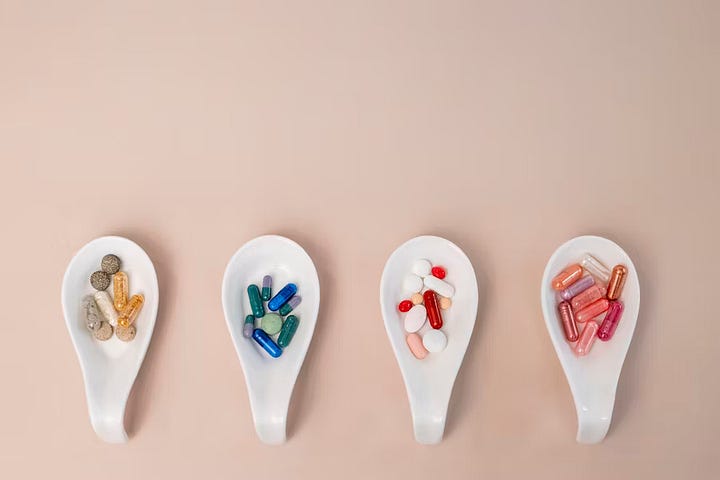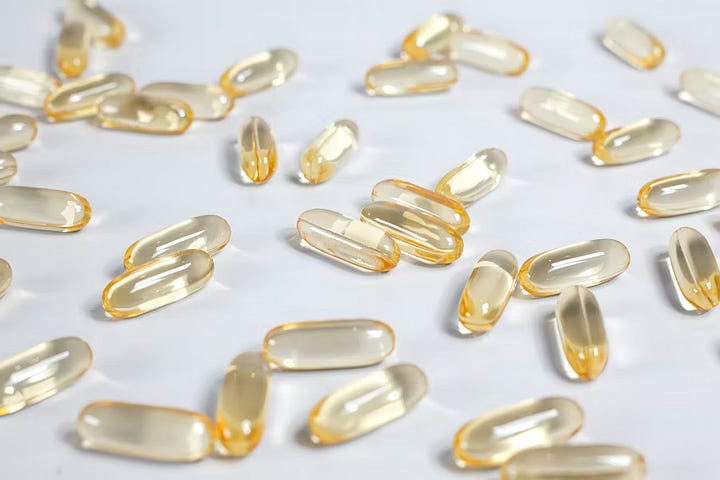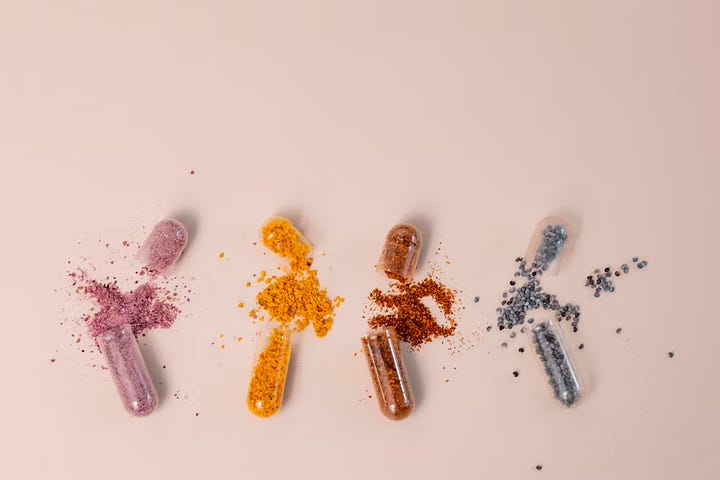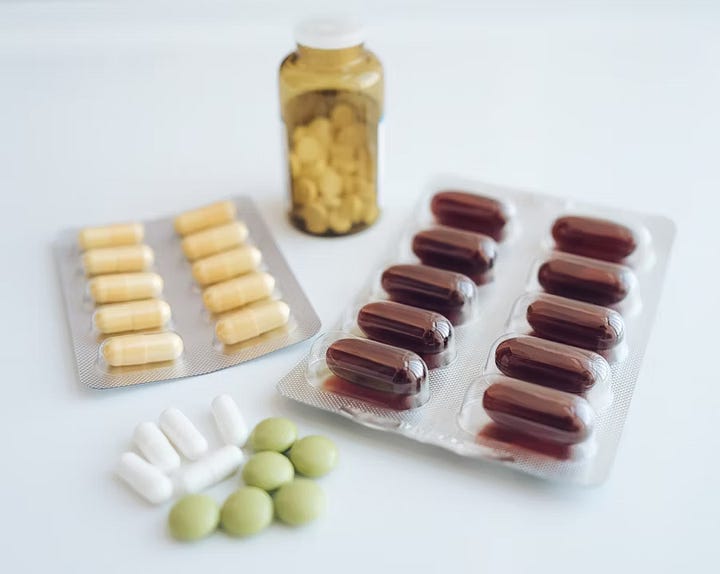The Real Rules of Supplements: Safety, Science, and Skepticism
The supplement industry is booming, valued at over $60 billion in the U.S. alone, but it’s also the subject of fierce controversy, confusion, and conflicting headlines. Are supplements regulated? Are they safe? Can they really help, or are they all hype?
A new review1 led by researchers, clinicians, and legal experts dives into these exact questions. The paper covers everything from FDA regulation to supplement safety, scientific evidence, and more. Below, I’ve distilled the major insights, with clear takeaways to help you navigate the supplement landscape.




1. Supplements Are Regulated… Just Not Like Drugs
Despite what you might hear online, supplements aren’t unregulated. In the U.S., they’re governed by the Dietary Supplement Health and Education Act (DSHEA), and regulated by both the FDA and FTC.
The FDA oversees manufacturing, labeling, and post-market safety.
The FTC enforces truth in advertising.
Products don’t need pre-approval like drugs, but companies must follow Good Manufacturing Practices and submit serious adverse event reports.
Takeaway: The system isn’t perfect, but it does exist. Demand transparency and GMP compliance when choosing products.2. Diet Alone Often Isn’t Enough
Micronutrient gaps are incredibly common, even in people eating “healthy.”
In one analysis, men and women failed to meet RDAs for 35–45% of essential nutrients, even with diverse diets.
Athletes, older adults, and people following vegan, keto, or low-calorie diets are at even higher risk of deficiencies.
Even Mediterranean and Japanese diets, often considered gold standards, fall short on nutrients like calcium, iron, and vitamin D.
Takeaway: Food-first is ideal, but supplementing makes sense for most people. Think of it as nutritional insurance.3. Industry-Funded Studies Aren’t Automatically Invalid
Yes, industry funding introduces potential bias. But bias exists in all research, regardless of who pays.
What matters more: transparency, study design, trial registration, and replicability.
In some cases, non-industry-funded trials are less rigorously registered than commercial ones.
The key is full disclosure of conflicts of interest and sound methodology.
Takeaway: Don’t dismiss studies just because they’re funded by brands. But look closely at how the research was done.4. Supplements Are Safer Than Many OTC Drugs
This one might surprise you.


Acetaminophen (Tylenol) causes hundreds of deaths and tens of thousands of ER visits yearly from overdose or interactions.
Supplements, by contrast, are far less likely to cause serious harm. Most supplement-related ER visits are due to stimulants or excessive caffeine, especially in younger adults.
Takeaway: Supplements aren’t risk-free, but the data shows they’re generally safer than many common over-the-counter drugs.5. RCTs Aren’t Required for Supplements (But They Help)
Contrary to popular belief, randomized controlled trials (RCTs) are not required by the FDA for supplement claims. Instead:
The FDA and FTC assess the totality of evidence, including observational, mechanistic, and clinical studies.
RCTs are helpful and often ideal, but not always feasible, especially for nutrients with long-term effects or low-risk profiles
Takeaway: Be skeptical of health claims without legitimate scientific support, but don’t demand RCTs for every supplement. Look for multiple lines of evidence.6. Want Trustworthy Info? Skip TikTok. Use These
Reliable sources to help you navigate supplement science:
SuppCo - Full nutrient breakdowns, health effects guides, and scientifically vetted studies
NIH Office of Dietary Supplements (ODS) – Evidence-based fact sheets
NSF Certified for Sport, Informed-Sport, and USP Verified – Trusted third-party certifications
JISSN (Journal of the International Society of Sports Nutrition) – Great for evidence-based sports nutrition
Takeaway: Vet claims using certified resources and credible platforms, not social media influencers.7. Why NIH Studies on Supplements Don’t Show Up on Labels


Even though NIH often funds supplement studies related to disease prevention, brands legally can’t make disease-related claims, unless their ingredient has undergone FDA review as a drug or qualified health claim.
That’s why you’ll see vague language like “supports heart health,” even if there’s a published RCT on blood pressure.
Takeaway: The absence of a disease claim on a supplement label says more about FDA rules than the strength of the science.Final Word: Supplements Aren’t a Cure-All, But They’re Not the Wild West, Either
The new research makes it clear: supplements are regulated, studied, and used responsibly by millions. They’re not perfect. But they’re not snake oil either.
The FDA and FTC play real roles
The industry has third-party certifiers
Evidence exists (though it varies by ingredient)
Many Americans benefit from supplementing, especially as nutrient gaps widen
If you’re looking for a science-driven tool to explore supplements and avoid marketing fluff, SuppCo is emerging as a trusted, fast-growing platform for just that.
Antonio, J., et al. (2025). “Common questions and misconceptions about dietary supplements and the industry - What does science and the law really say?“. doi.org/10.1080/15502783.2025.2534128.


